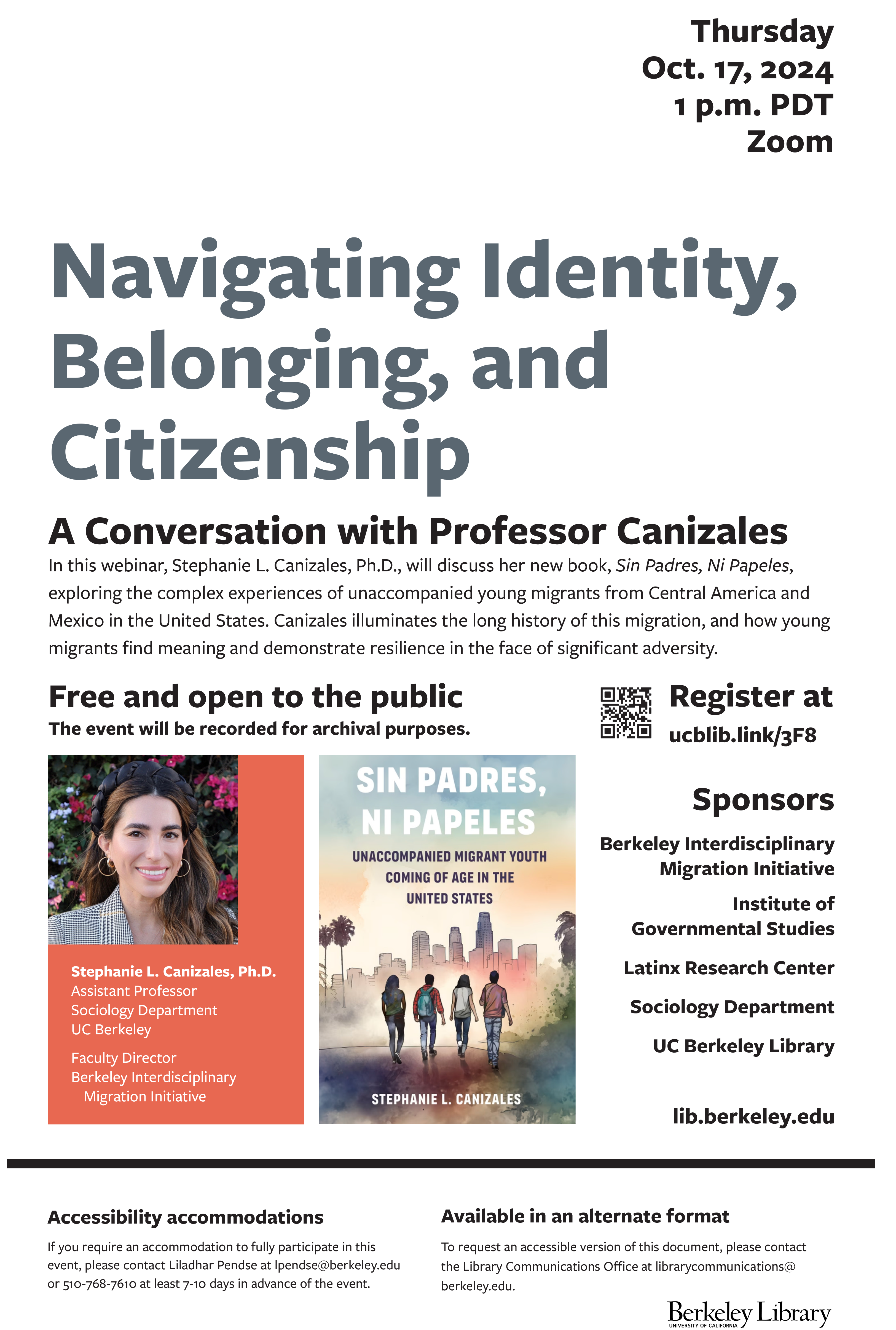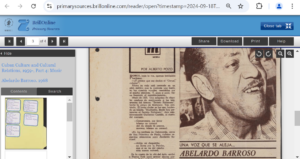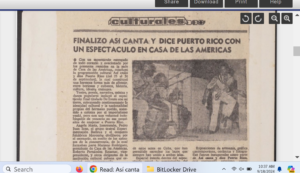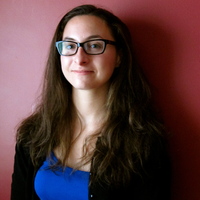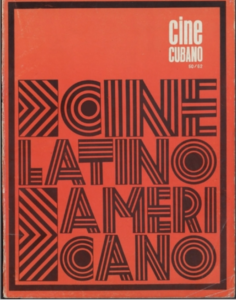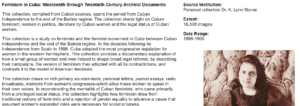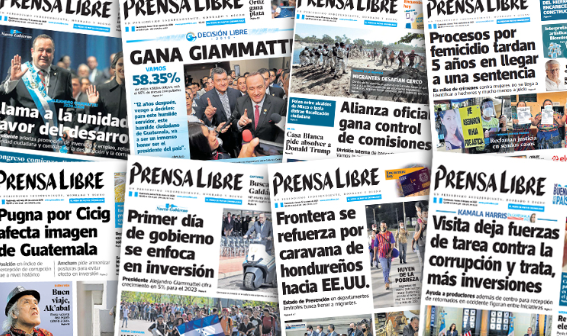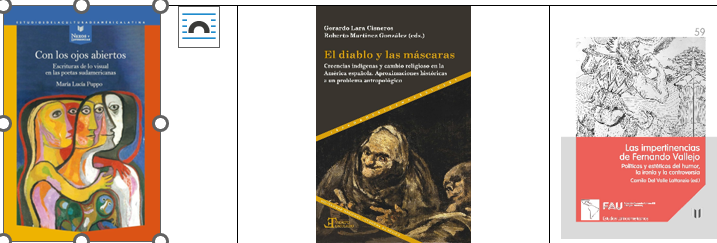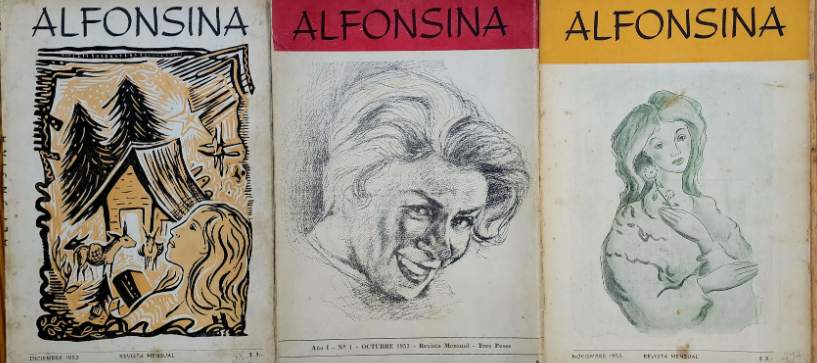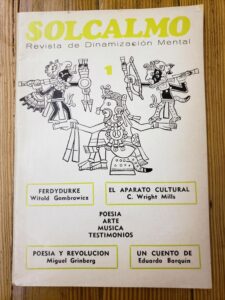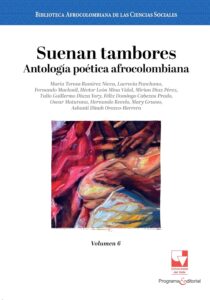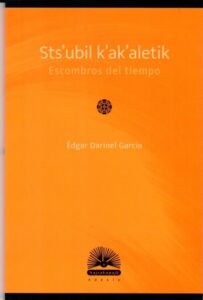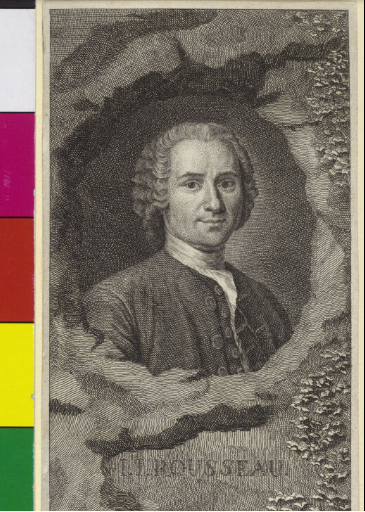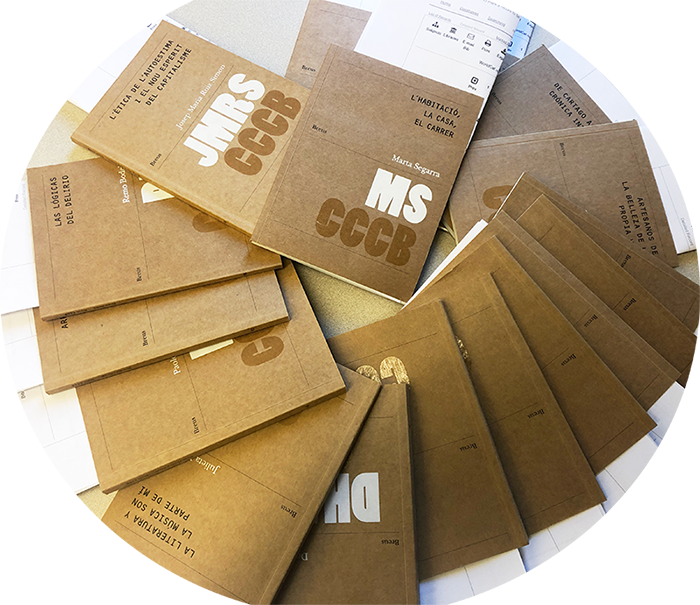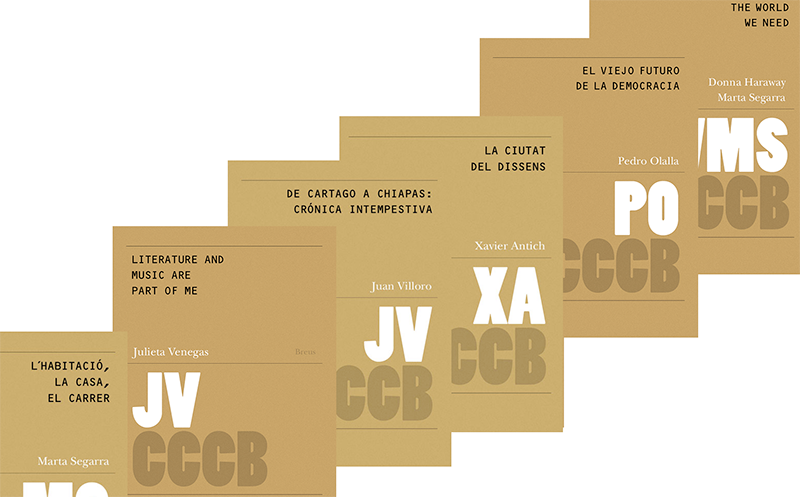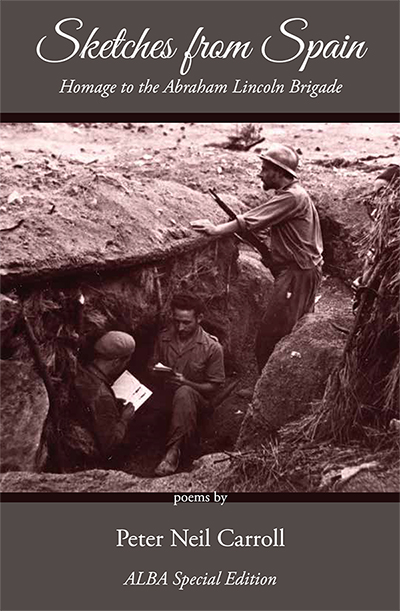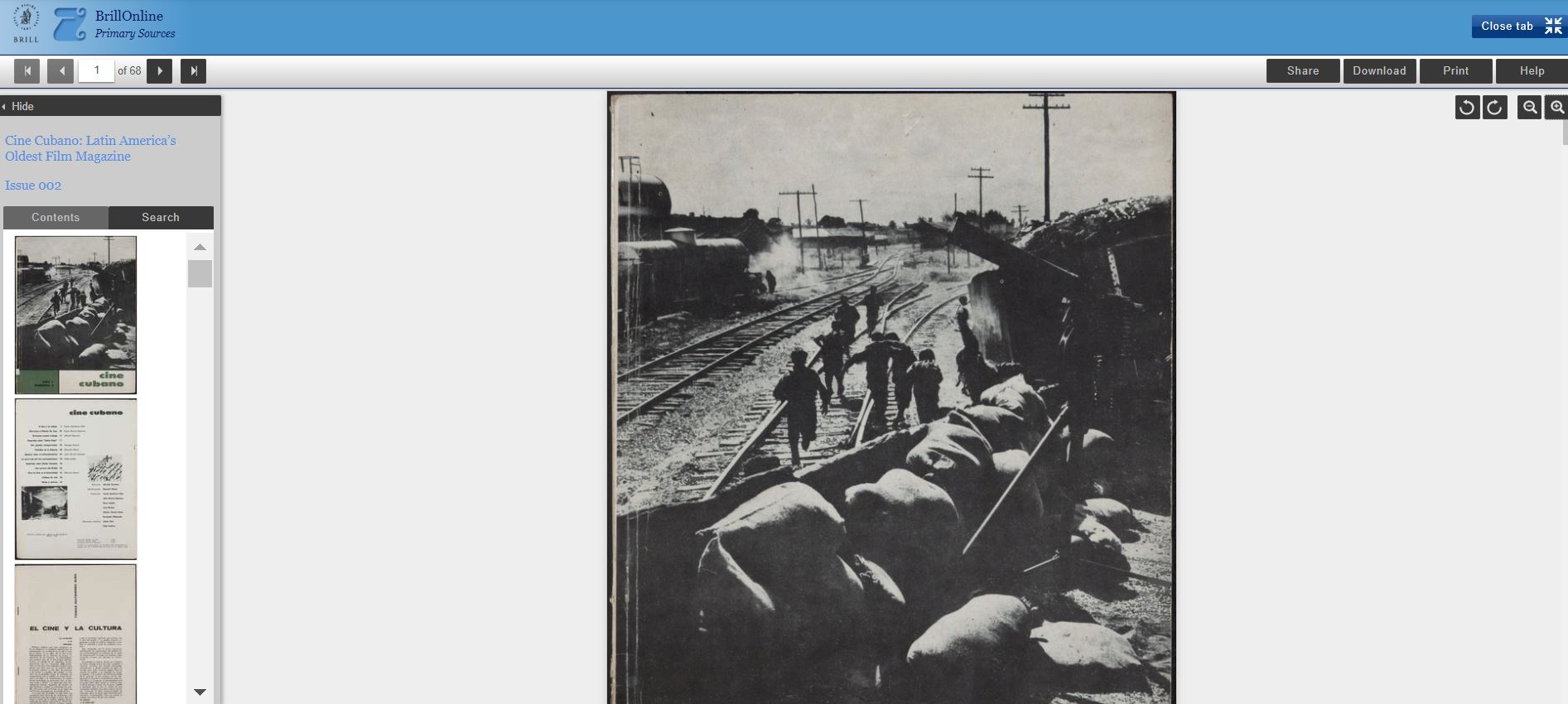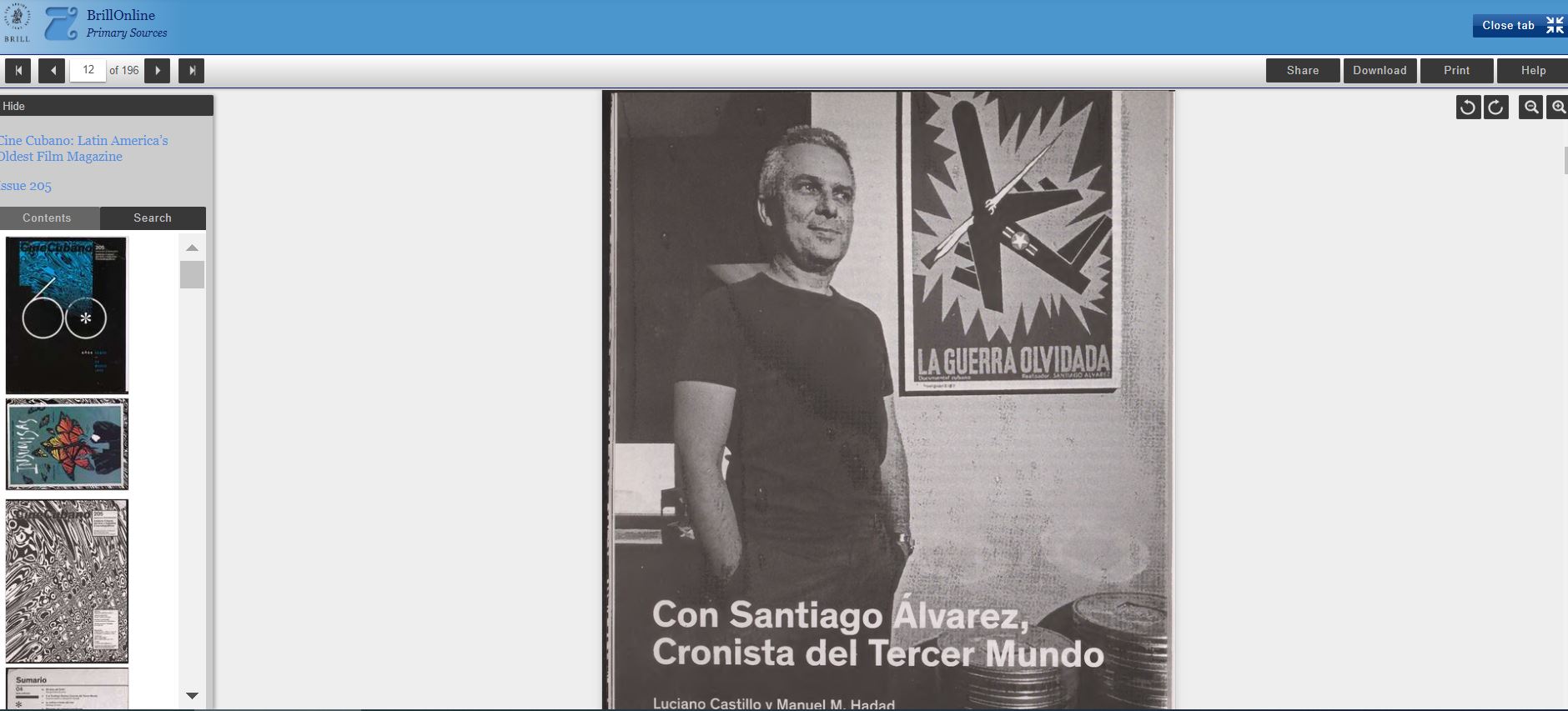The UC Berkeley Library has initiated a thirty-day trial of British Intelligence on Russia in Central Asia, c. 1865–1949’s database. The trial ends on November 17, 2024
One may access the trial here: Brill’s British Intelligence on Russia in Central Asia.
Please log in using proxy or VPN if you are accessing the resource from an off-campus location.
The database contains the following primary sources according to the self-description below, ”
Michell’s Russian Abstracts
During the 1870s and 1880s, the India Office Political and Secret Department considered the Russian and Central Asian question so vital that it employed an interpreter, Robert Michell, whose task was to review and translate Russian printed reports and extracts from Russian newspapers and other publications. Newspapers and journals regularly monitored included the Moscow Gazette, Turkestan Gazette, Journal de St Petersbourg, Russian Invalid, St Petersburg Gazette, Golos, Turkestan Gazette, and Novoye Vremia.
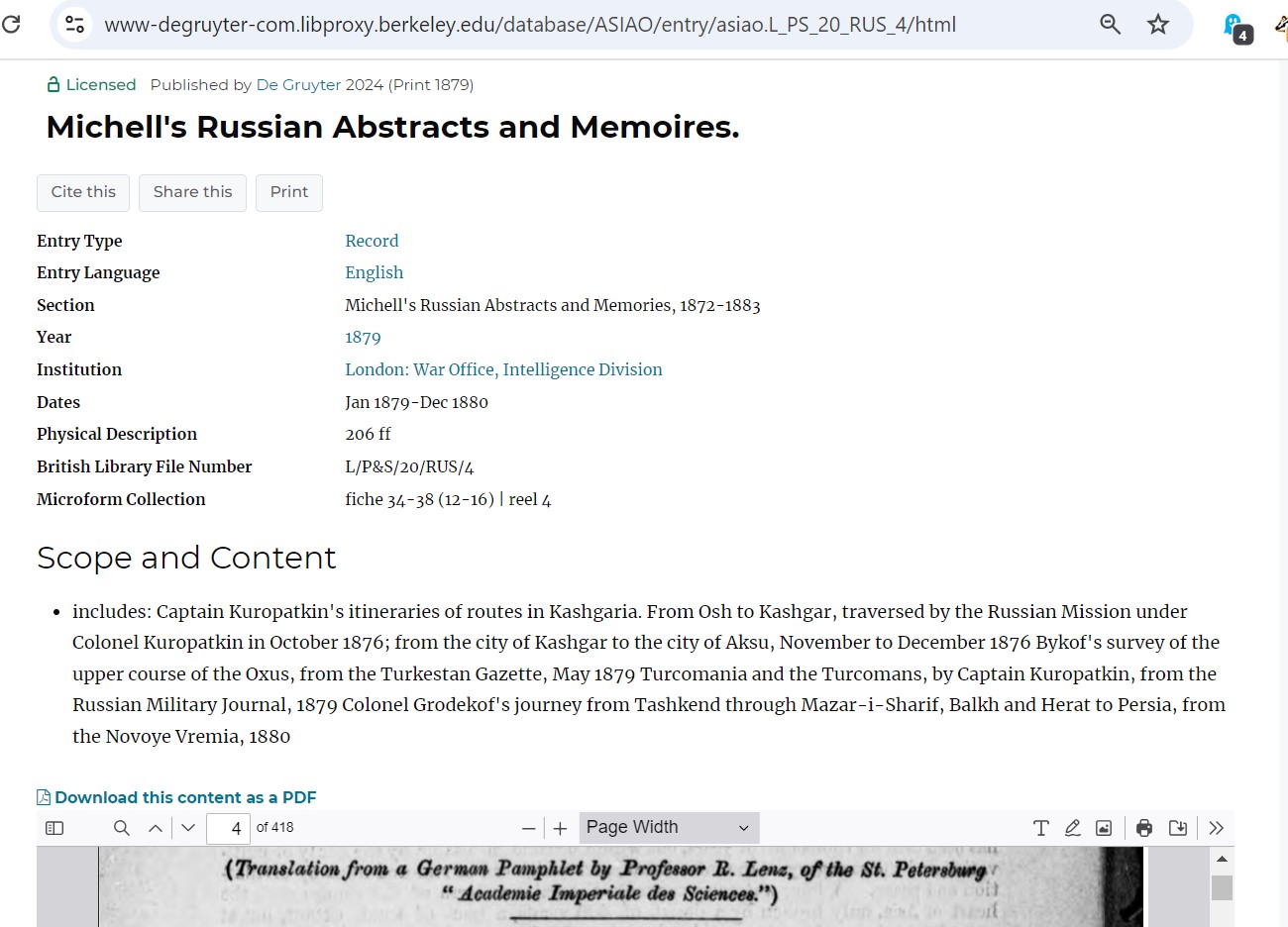
Michell’s Russian Abstracts and Memories, 1872-1883
Year
1879
Institution
London: War Office, Intelligence Division
Political and Secret Memoranda
At about the same time, as a result of the increasing quantity of intelligence now being regularly received, the India Office Political and Secret Department began to produce printed memoranda in order to provide ministers with easily digestible précis of the information they needed to formulate policy. For officials in India and London, processing information from the frontiers and providing background papers for successive incoming governments and their ministers became an almost full-time occupation. The Memoranda was arranged and numbered by contemporary India Office officials in an alphanumeric sequence that reflected the geographical subject area. Memoranda relating to Central Asia, which included items reflecting the great political debate and guessing game over the nature of Russian intentions in the region, were usually put away in series “C”.
Political and Secret Files on Soviet Central Asia
Although Anglo-Russian rivalry officially ended with the Convention of 1907, Russian ascendancy in Central Asia continued to interest the British imperial administrations. The two powers confronted each other again after the First World War and the Russian Revolution. With the creation of Soviet Socialist Republics in the period between the two World Wars, the British rulers of India were increasingly concerned with infiltrating Indian politics of communist and nationalist agents and ideas. During this period, a new generation of British military and political intelligence officers, spies, and adventurers made courageous, sometimes unofficial, journeys into the Central Asian republics and beyond into Sinkiang. A British Indian agent was stationed at Kashgar in 1893, but 1911 the post was upgraded to Consulate-General. Kashgar became the listening post and source of regular intelligence briefings, political diaries, and trade reports.
Provenance and Archival Background
The archives of the India Office Political and Secret Department (and Military Department) form part of the Oriental and India Office Collections (OIOC) now within the Asia, Pacific, and Africa Collections at the British Library. The Political and Secret Department papers and printed material have now been catalogued under the OIOC reference L/PS. Military Department papers are located under the reference L/MIL.
